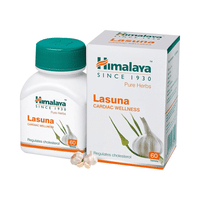Ril AA Capsule

Rs.91.60for 1 strip(s) (10 capsules each)
food interaction for Ril AA
alcohol interaction for Ril AA
pregnancy interaction for Ril AA
lactation interaction for Ril AA
food
alcohol
pregnancy
lactation
Ril AA Capsule is to be taken with food.
Taking it with food helps to avoid stomach upset.
None
Taking it with food helps to avoid stomach upset.
None
CAUTION
It is unsafe to consume alcohol with Ril AA Capsule.
UNSAFE
Ril AA Capsule is highly unsafe to use during pregnancy. Seek your doctor's advice as studies on pregnant women and animals have shown significant harmful effects to the developing baby.
UNSAFE
Ril AA Capsule is probably unsafe to use during breastfeeding. Limited human data suggests that the drug may pass into the breastmilk and harm the baby.
CONSULT YOUR DOCTOR
SALT INFORMATION FOR Ril AA
Atorvastatin(10mg)
Uses
Atorvastatin is used in the treatment of high cholesterol.
How it works
Atorvastatin is a lipid-lowering medication (statin). It works by blocking an enzyme (HMG-CoA-reductase) that is required in the body to make cholesterol. It thus lowers "bad" cholesterol (LDL) and triglycerides, raising the level of "good" cholesterol (HDL).
Common side effects
Increased glucose level in blood, Indigestion, Diarrhea, Fever, Increased creatine phosphokinase (CPK) level in blood, Joint pain, Nasopharyngitis (inflammation of the throat and nasal passages), Nausea, Pain in extremities, Urinary tract infection, Abnormal liver function tests, General discomfort, Hepatitis (viral infection of liver), Muscle damage, Rhabdomyolysis, Immune-mediated necrotizing myopathy
Aspirin(75mg)
Uses
Aspirin is used for Angina (heart-related chest pain), heart attack and Stroke. It decreases the chances of having another heart attack or stroke from a disease related to your heart or blood vessels.
How it works
Aspirin is a non-steroidal anti-inflammatory drug (NSAID) with anti-platelet action. It works by preventing platelets from sticking together which decreases the formation of harmful blood clots. This lowers the chance of heart attack or stroke.
Common side effects
Increased bleeding tendency, Nausea, Vomiting, Angioedema (swelling of deeper layers of skin), Gastrointestinal bleeding, Low blood platelets, Dyspepsia, Inflammation of the nose, Shortness of breath, Red spots or bumps, Agranulocytosis (deficiency of granulocytes in the blood), Aplastic anemia, Allergic edema, Anaphylactic reaction, Intracranial bleeding, Hemorrhagic vasculitis, Bronchospasm, Asthma attack, Menorrhagia (heavy menstrual bleeding), Stevens-Johnson syndrome, Lyell’s syndrome, Purpura, Erythema nodosum, Erythema multiforme
Ramipril(5mg)
Uses
Ramipril is used in the treatment of Hypertension (high blood pressure), prevention of heart attack and stroke and Heart failure.
How it works
Ramipril is an angiotensin converting enzyme (ACE) inhibitor. It works by reducing stress on the heart and relaxing blood vessel so that blood flows more smoothly and the heart can pump blood more efficiently.
Common side effects
Dizziness, Drowsiness, Dry cough, Headache, Fatigue, Nausea, Vomiting, Decreased blood pressure
SUBSTITUTES FOR Ril AA
4 Substitutes
4 Substitutes
Sorted By
 Rs. 51.50save 47% more per Capsule
Rs. 51.50save 47% more per Capsule Rs. 66.50save 30% more per Capsule
Rs. 66.50save 30% more per Capsule- Avopril AS 10 mg/75 mg/5 mg Capsule(10 capsules in strip)Torrent Pharmaceuticals LtdRs. 9.21/Capsule
 Rs. 95pay 1% more per Capsule
Rs. 95pay 1% more per Capsule  Rs. 95pay 1% more per Capsule
Rs. 95pay 1% more per Capsule
Expert advice FOR Ril AA
- In general, Atorvastatin is safe. It may cause diarrhea, gas or an upset stomach. If any of these happen to you, take it with food.
- Inform your doctor if you experience fatigue, muscle weakness or muscle pain.
- Your doctor may check your liver function before starting the treatment and regularly thereafter. Inform your doctor if you notice signs of liver problems such as stomach pains, unusually dark urine or yellowing of skin or eyes.
- Inform your doctor if you have kidney disease, liver disease or diabetes before starting treatment with this medicine. If you are diabetic, monitor your blood sugar level regularly as Atorvastatin may cause an increase in your blood sugar level.
- Do not take Atorvastatin if you are pregnant, planning a pregnancy or breastfeeding.
Frequently asked questions FOR Ril AA
Atorvastatin
Q. What should I know about high cholesterol?
Cholesterol is a type of fat present in your blood. Total cholesterol is determined by the total amount of LDL and HDL cholesterol in the body. LDL cholesterol is called “bad” cholesterol. Bad cholesterol can build up in the wall of your blood vessels and slow or obstruct blood flow to your heart, brain, and other organs. This can cause heart disease and stroke. HDL cholesterol is called “good” cholesterol as it prevents the bad cholesterol from building up in the blood vessels. High levels of triglycerides are also harmful to you.
Q. Is Atorvastatin used for lowering cholesterol?
Atorvastatin belongs to a group of medicines known as statins, which lowers the level of lipids or fats. Atorvastatin is used to lower lipids known as cholesterol and triglycerides in the blood when a low-fat diet and lifestyle changes fail to lower the levels of cholesterol and triglycerides. If you are at an increased risk of heart disease, Atorvastatin can also be used to reduce such risk even if your cholesterol levels are normal. You should maintain a standard cholesterol-lowering diet during treatment.
Q. Will taking Atorvastatin lead to an increase in my risk of diabetes?
If you are at high risk of developing type 2 diabetes, taking Atorvastatin may increase this risk slightly. This is because Atorvastatin can raise your blood sugar a little. If you already have type 2 diabetes, your doctor may advise monitoring your blood sugar levels more closely for the first few months. Tell your doctor if you find it harder to control your blood sugar.
Aspirin
Q. How long should I take Aspirin for?
You will need to take Aspirin for the rest of your life unless stopped by your doctor.
Q. When will I feel better after taking Aspirin?
Aspirin is known to reduce the risk of heart attack and stroke. You may not feel any difference after taking Aspirin. Keep taking it as prescribed by your doctor to keep getting the benefits.
Q. How long does Aspirin take to clear from the body?
It takes around 10 days for Aspirin to get cleared from the body after completely stopping this medicine.
Ramipril
Q. I have been diagnosed with heart failure and the doctor has prescribed me Ramipril. Why?
Ramipril belongs to the angiotensin-converting enzyme (ACE) inhibitor group of drugs. It relaxes and widens the blood vessels, making it easier for the blood to pass through the vessels. As a result of this, the heart does not have to work more to push the blood. Since the workload on the heart is reduced, it is beneficial in heart failure. Additionally, it is also used to lower blood pressure and prevent stroke.
Q. When can I expect my blood pressure to be normal after starting Ramipril?
Ramipril takes a few hours to reduce high blood pressure but since there are no symptoms, you will not notice any difference. It takes a few weeks for the blood pressure to get fully controlled. Do not stop taking the medicine. Keep taking it even if you feel better or if your blood pressure is normalized.
Q. Can Ramipril increase potassium levels? If yes, what should be done?
Ramipril may increase potassium levels in the blood, especially if you have uncontrolled diabetes mellitus, kidney problems, and dehydration. Potassium levels may also increase in patients using potassium salts or medicines which increase potassium levels or are aged more than 70 years of age. If you have any of these conditions and are using Ramipril, you need to be careful and get regular blood tests done to monitor potassium levels.






















